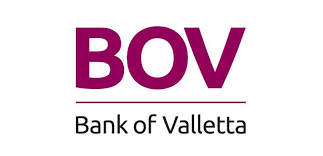On the 18th March the President of the Gozo Business Chamber (GBC), Mr Joseph Borg, participated in a debate about the Gozo-Malta tunnel organised by Wirt Għawdex. The GBC participated together with other speakers and other stakeholder organisation representatives to present its opinion.
In his intervention Mr Joseph Borg thanked Wirt Għawdex for the invitation and for their initiative to hold this debate. He highlighted that the subject of the Gozo-Malta Subsea Tunnel, has been promoted by the Chamber for the last ten years but that the Chamber had already started mentioning a permanent link between the islands of Gozo and Malta more than twenty years ago, the same time the GBC was founded.
One of the first public meetings was held in February 2011, eight years ago, and in March 2011 in the publication of the GBC, Isle Link the GBC stated that, “the question of a permanent link, has now gathered irreversibile momentum. Since January of the present year (i.e. 2011), when the debate was brought up to the forefront on the national media, what had always been a dream in the mind of a number of people, has become a possibility within the grasp of a people”.
Mr Joseph Borg highlighted how when this idea was put forward in 2011 and Eivind Grov, Chief Scientist and Professor at the Norwegian University of Science and Technology was appointed as consultant to the Maltese Government, there was general consensus of the Gozitan constituted bodies who all backed the political responsibility assumed by the Government to study the matter further. Mr Joseph Borg remarked how the GBC was instrumental in pushing forward the subsea tunnel on the policy agenda.
In February 2015 the Chamber took the initiative to commission Dr Gordon Cordina to conduct a study on the economic and financial feasibility of alternative solutions towards providing connectivity between the Island of Gozo and the main Island of Malta. Transport Malta in a short time came on board and in September 2015 the report was published. The economic analysis presented in the report took into consideration the following factors: (i) effects on traffic flows on economic activity in Gozo; (ii) effects on vehicle traffic and waiting times; (iii) implications for the costs of fuel used; and (iv) climate change and pollution effects. The proposal had also been on the electoral programme of both parties for consecutive legislatures.
Mr Joseph Borg highlighted how debates and studies on this initiative have been ongoing. Though the Gozo Channel Company is performing to the best of its capabilities the service has reached saturation point and a complete meltdown of the service is being risked. Mr Borg highlighted how the Chamber is in favour of introducing a fourth ferry, the fast ferry and also the helicopter service, and that these options should materialize sooner rather than later. However, we cannot just stay throwing proposals into discussion. Mr Borg highlighted the current plight of various segments of society including that of Gozitan commuters, patients, students and tourists over the current state of affairs. He remarked how this project would benefit not only Gozo but also Malta, as services would not always need to be duplicated but Gozo would also be able to specialise on particular services forming part of a national network serving the entire Maltese population.
He also indicated how this project would ease traffic from roads and would help address the problem of ageing and dwindling communities that Gozo is experiencing. Mr Borg remarked that while the tunnel is not the solution to all the problems it can be a road to a future of sustainable investment which the Chamber would be willing to suggest to the Authorities, while in no way harming the environment if the proper plans are in place. However, it is now time to act as further delays will risk putting the future of Gozo and its population at risk.
The full speech by Joseph Borg, can be downloaded through the following link: Wirt Għawdex Debate 18 March 2019.


























